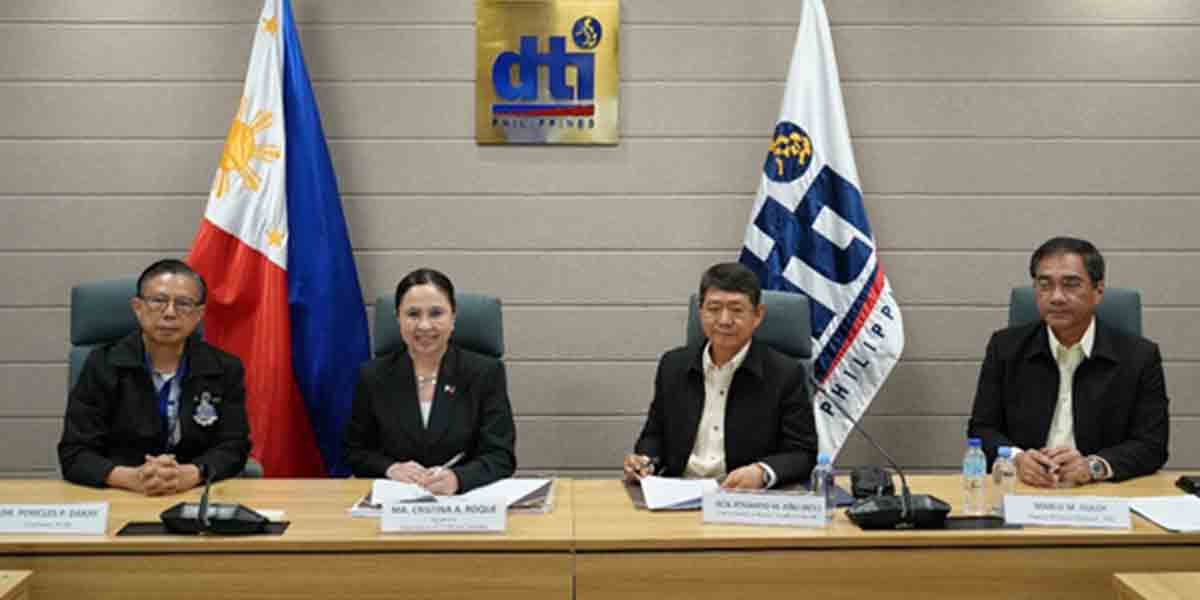 By Herbert L. Vego
By Herbert L. Vego
AS tropical storm Dante was pouring rain the other day, I remembered my stormy ordeal on the way to church to say “I do”. Retelling that experience here could be my act of penance and a lesson for today’s marriageable youth.
Forty-nine years ago, I was a starry-eyed 22-year-young bachelor who had to rush into a June wedding because my fiancée would like “to be a June bride”.
When I asked why she wanted to be a June bride, she answered that couples who marry in June would be blessed with prosperity and happiness.
The cocky me immediately agreed, “Your wish is my command.”
It never crossed my mind that I would be jumping into the swimming pool without ascertaining if the water was deep, clear, and clean.
I was 22 years young in 1972 and was not supposed to marry yet, lest I would displease my parents who were banking on my promise to send my younger siblings to college.
As a tyro newspaperman in Manila and fresh out of Journalism school, I had barely saved enough money for a wedding. My future parents-in-law must have read my harried looks; they volunteered to foot half of the expenses.
I tricked myself into believing that, since I was earning above the minimum wage, a second mouth to feed would be peanuts. I didn’t consider it a problem that my girl was still a college student, hence jobless.
I agreed to marry her in the Roman Catholic Church of Guadalupe, Makati City even if I was not a Catholic, on June 25, 1972.
It was an unforgettable but undesirable day, starting ominously with heavy rains that proved the weatherman right: Typhoon Konsing (signal No. 3) had struck Metro Manila. By the time I was riding a borrowed car on the way to the church, floodwater had risen knee-deep. There was a time when the engine conked out, and I had to push the car with the help of bystanders to enable the driver to rerun it and reach the church in the nick of time.
While Fr. Francisco San Diego was pronouncing us newly-wed “man and wife,” the wind was blowing harder and the rain was pouring heavier. The floodwater had become so non-negotiable by small cars that some of our sponsors failed to make it to the wedding ceremony
If it was any consolation, my relatives – except my disappointed parents –braved the elements and came in full force.
Fortunately, one of our wedding sponsors was the late Dr. Jose Perez, the big boss of what was then the biggest film firm, Sampaguita Pictures. He had some of our guests transported by company bus to the reception.
But our supposedly ecstatic honeymoon that night turned into a “sleepless disaster” at the nearest hospital due to my bride’s sudden epileptic seizure.
Thereafter, other unexpected financial problems hit us hard at close intervals, resulting in her decision to quit school. With the birth of our baby boy, she turned to selling beauty products to augment my income.
To make the long story short, the marriage failed; we broke up after eight years of enduring personal differences.
If there was one thing I succeeded in, it was in proving my parents right: that “singles” had to be well-prepared before plunging into “double life.”
I wonder how many other ill-prepared June brides and grooms have also called it quits.
May this piece impart a valuable lesson to today’s “marriageables” who mistakenly think that tying the knot in June brings good luck. Oh no, specifically not in this pandemic year!
Applying the June-wedding tradition to Filipinos does not make sense when viewed against its beginning in Rome. The Romans favored June weddings because that was the month dedicated to Juno, the Roman goddess of marriage.
There was a practical side for them: A marriage in June was to time conception in such a way that births wouldn’t interfere with harvest work. The baby would be born soon enough for the bride to be in shape for the harvest.
In pre-contraceptive Europe, getting married in June meant that children conceived in that month would be born the following spring, increasing their chances of survival after the long and lean winter months.
The Hollywood movie industry exploited and boosted the popularity of June as the wedding month by churning movies sustaining that image. Among these movies were June Bride (1948) and Seven Brides for Seven Brothers (1954).
Unfortunately, the Roman style makes no sense in Philippine setting because, first, June marks the beginning of the rainy season and typhoon visits in the archipelago. Second, back-to-school expenses are in high gear. Third, diseases like dengue, influenza and typhoid are rampant in the rainy month of June.
Worse than the aforementioned is the coronavirus disease (Covid-19) that has devastated the entire planet for more than a year already.
Therefore, it would be wiser to marry in December or January when cold weather enhances the romantic air.
Or, better still — if the pandemic persists — stay single in accordance with the Bible. Believe it or not, it’s in 1 Corinthians 7:38: “The person who marries his fiancée does well, and the person who doesn’t marry does even better.”
I rest my case.
—0—
AN UPDATED MESSAGE FROM MORE POWER
THIS an updated urgent message to electricity consumers of Iloilo City, as relayed by Jonathan Cabrera, PR man of MORE Power. Here is his message:
“In compliance with the executive order of Mayor Jerry Treñas enjoining us to limit human movement in the city, MORE Power has temporarily closed its customer service office at Hotel Del Rio until further notice. We are strictly enforcing social distancing and other protocols aimed at curbing the spread of Covid-19.
“For your convenience when paying bills, please patronize third-party payment centers.
“We have 160 partner branches in the entire city, which are easily accessible at Banco de Oro (BDO), Philippine National Bank (PNB), Landbank, Robinsons Bank, Queenbank, Ok Bank, Metrobank, Union Bank, Palawan Pawnshop, RD Pawnshop, LBC and SM Payment Center.
“It is also possible to pay online via BDO, Metrobank and Dragon Pay.
“For more information, you may call our hotline telephone number 3306673.”























